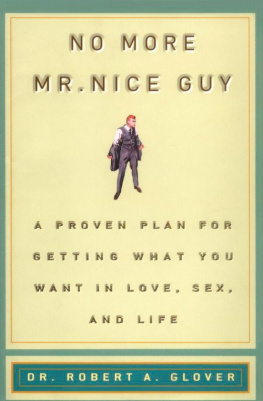More praise for
Humanity
An impressive and accessible analysis of 20th-century brutality.Kirkus Reviews
This is an important book. It should find a central place in every peace studies or policy studies program and anywhere people are concerned with making the world more humane.
Paul J. Johnson, Religious Studies Review
[An] eminently readable yet profound book. It should be required reading for anyone interested in the scope and limits of human ethical behavior.Dr. Martin L. Cook, Parameters: U. S. Army War College Quarterly
Glovers disturbing historical survey shows us how moral identity can erode through dehumanizing others individually and collectively, through establishing distance enough to make their suffering invisible, through the sharing of responsibility for action, through utilitarian and utopian rationalization This instructive book is well worth reading.
Michael J. Kerlin, America
This is an extraordinary book, incisive and far-reaching, that both confronts unpleasant historical facts and offers some hopeful suggestions about what concerned human beings can do about them.Martha Nussbaum
Our libraries teem with tedious books that try to explain the modern world in terms of ideology or economics or power politics. But Jonathan Glover, by linking history with ethics, has found an unusually refreshing, thought-provoking and convincing approach.Norman Davies
By the same author
RESPONSIBILITY
CAUSING DEATH AND SAVING LIVES
WHAT SORT OF PEOPLE SHOULD THERE BE?
I: THE PHILOSOPHY AND PSYCHOLOGY
OF PERSONAL IDENTITY
CHOOSING CHILDREN: GENES, DISABILITY, AND DESIGN
HUMANITY
A Moral History of the Twentieth Century
Second Edition
Jonathan Glover

To Ruth
Second edition published in 2012 by Yale University Press.
Printed in the United States in 2000 by Yale University Press.
First published in Great Britain in 1999 by Jonathan Cape.
Copyright 1999 by Jonathan Glover.
Preface to the Second Edition copyright 2012 by Jonathan Glover.
All rights reserved.
This book may not be reproduced, in whole or in part, including illustrations, in any form (beyond that copying permitted by Sections 107 and 108 of the U.S. Copyright Law and except by reviewers for the public press), without written permission from the publishers.
Yale University Press books may be purchased in quantity for educational, business, or promotional use. For information, please e-mail sales.press@yale.edu (U.S. office) or sales@yaleup.co.uk (U.K. office).
Printed in the United States of America.
Library of Congress Control Number: 2012937533
ISBN 978-0-300-18640-6 (pbk.)
A catalogue record for this book is available from the British Library.
10 9 8 7 6 5 4 3 2 1
The chief business of twentieth-century philosophy is to reckon with twentieth-century history.
R.G. Collingwood, An Autobiography
Contents
PART ONE
ETHICS WITHOUT THE MORAL LAW
PART TWO
THE MORAL PSYCHOLOGY OF WAGING WAR
PART THREE
TRIBALISM
PART FOUR
WAR AS A TRAP
PART FIVE
BELIEF AND TERROR: STALIN AND HIS HEIRS
PART SIX
THE WILL TO CREATE MANKIND ANEW: THE NAZI EXPERIMENT
PART SEVEN
ON THE RECENT MORAL HISTORY OF HUMANITY
Preface to the Second Edition
Humanity: A Moral History of the Twentieth Century is intended as more than a history of a hundred years. It asks a question about human beings. What in our psychology causes our history of cruelty and violence? Partly because of the power of technology, twentieth-century episodesthe two world wars, the Nazi genocide, the killing of millions under Joseph Stalin and Mao Tse Tung, Hiroshima and othersare among the worst ever man-made catastrophes. How were people able to do such things to each other? The hope behind the enquiry was that better understanding might help make repetition a bit less likely.
In this preface I want to do two things. The first is briefly to update the book and to show the present-day relevance of what it says about war and conflict. Our psychology has not suddenly changed, and atrocities have continued. This is shown most obviously and dramatically by the events of 9/11 and what followed. The second aim is to indicate some aspects of the underlying structure of the book.
I
The book discusses many causes of war and violence. Here I mention three. One is the cycle of violence created by the backlash against defeat or humiliation. Another is the way war is a trap that groups fall into. Contrary to popular views, the psychology of aggression is far less important than the psychology of entrapment. And third, part of the trap of war comes from the limits of our moral imagination.
I provide some reasons for thinking that these problems and limitations are not historical curiosities but constrain us now. They are a large part of what we need to overcome if we are to move to a more peaceful world.
1. THE CYCLE OF VIOLENCE
Members of rival warring groups often have their own identities bound up with their group. They care about being German or French, Serbian or Croatian, Israeli or Palestinian. Defeats are deep in group memory. The backlash against humiliation often creates the next round of the conflict.
One case in the book is the cycle of humiliation and backlash in nine-teenth-and twentieth-century German nationalism. Johann Gottlieb Fichte gave his nationalist Addresses to the German People in 1807 in a Berlin occupied by Napoleons army. After the French defeat in 1870 and the Prussian victory march down the Champs-Elyses, France had to pay reparations and give Alsace and Lorraine to Germany. These resented humiliations contributed to the outbreak of the First World War in 1914. They made France in 1918 push for harsh terms for Germany, including the humiliating war guilt clauses.
The German nationalist backlash was clear. Mein Kampf was filled with Adolf Hitlers boiling anger at the humiliations. The major theme of his life, echoed in public opinion, was to undo them. After defeating France in 1940, Hitler retaliated. In a theatrical humiliation, the French representatives signed the armistice in the railway carriage at Compigne where the German representatives had signed in 1918. Hitler had Marshal Fochs seat.
These are dramas of long ago. But the pattern of humiliation and backlash is found in our own time. In the conflict of which 9/11 was part it is apparent on both sides.
9/11 and the War on Terror Soon after 9/11, in a broadcast on Al Jazeera on October 7, Osama bin Laden made a statement: What America is tasting today is but a fraction of what we have tasted for decades. For over eighty years our umma has endured this humiliation and contempt. Its sons have been killed, its blood has been shed, and its holy sanctuaries have been violated, all in a manner contrary to that revealed by God, without anyone listening or responding But when after eighty years the sword comes down on America, the hypocrites rise up to lament these killers who have scorned the blood, honour and holy places of Muslims.
In February 1998 a declaration by the World Islamic Front, signed by bin Laden and others, announcing a jihad against Jews and Crusaders, had outlined the aim of killing Americans and their allies everywhere, so that their armies leave all the territory of Islam, defeated, broken, and unable to threaten any Muslim. To hope that Americans will be left defeated and broken is part of the backlash: the desire to repay humiliation in kind. Looking back on 9/11, he said that the attackers rubbed Americas nose in the dirt, and wiped its arrogance in the mud. The attack showed that America can be struck down and humiliated.
Next page












